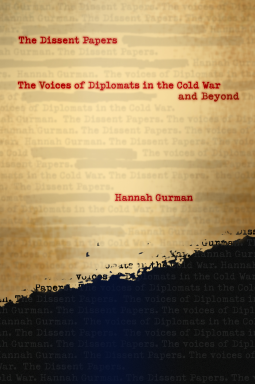
The Dissent Papers
The Voices of Diplomats in the Cold War and Beyond
by Hannah Gurman
This title was previously available on NetGalley and is now archived.
Send NetGalley books directly to your Kindle or Kindle app
1
To read on a Kindle or Kindle app, please add kindle@netgalley.com as an approved email address to receive files in your Amazon account. Click here for step-by-step instructions.
2
Also find your Kindle email address within your Amazon account, and enter it here.
Pub Date Jan 17 2012 | Archive Date Sep 01 2012
Description
Beginning with the Cold War and concluding with the 2003 invasion of Iraq, Hannah Gurman explores the overlooked opposition of U.S. diplomats to American foreign policy in the latter half of the twentieth century. During America's reign as a dominant world power, U.S. presidents and senior foreign policy officials largely ignored or rejected the reports, memos, and telegrams of their diplomats, especially when they challenged key policies regarding the Cold War, China, and wars in Vietnam and Iraq. The Dissent Papers recovers the invaluable perspective of these individuals and their commitment to the transformative power of diplomatic writing.
Gurman showcases the work of diplomats who enjoyed some success with their opposition. George Kennan, John Stewart Service, John Paton Davies, George Ball, and John Brady Kiesling all caught the attention of sitting presidents and policymakers, achieving temporary triumphs yet ultimately failing to change the status quo. Gurman follows the circulation of documents within the State Department, the National Security Council, the C.I.A., and the military and details the rationale behind "The Dissent Channel," instituted by the State Department in the 1970s to both allow and contain dissent. She connects the erosion of the diplomatic establishment and the weakening of the diplomatic writing tradition to larger political and ideological trends and advances an alternative narrative of modern U.S. history while, at the same time, foreshadowing the resurgent importance of diplomatic writing in the age of Wikileaks.
Hannah Gurman is a clinical assistant professor at New York University's Gallatin School of Individualized Study, where she teaches history, literature, and culture of the United States in the world. Her writing has appeared in Salon and Foreign Policy in Focus, as well as The Journal of Contemporary History, Diplomatic History, and Small Wars Journal.
Advance Praise
"The Dissent Papers is an outstanding account of dissent in the State Department since the Second World War. I know of no work that treats the issue in the synoptic manner provided in this account. The later chapters, in particular, present new material in a subtle and provocative way. It is fresh, unique, and stimulating."
-Frank Ninkovich, St. John's University
"Gurman's approach and evidence are fresh and original. She brings disparate but connected stories together to show how diplomats used the primary tool given them: language."
-Elizabeth Cobbs Hoffman, author of Broken Promises, A Novel of the Civil War
Available Editions
| EDITION | Hardcover |
| ISBN | 9780231158725 |
| PRICE | 40.00 |
| PAGES | 288 |



